Muhammad Iqbal (1877-1938): My Inspiration
My journey into Iqbal’s philosophical world dates back to my high school days. As a young man, I was always on the go searching for something that could elevate my Islamic spirit. From those days to the present moment, I am a person who has a huge interest in topics like; human nature, God, and spirituality. During my teenage days, as a way to quench my thirst on such topics, I used to drop by secondhand bookshops in the city in which I was raised. Recommended by the elders of the shops I visited, I read Maududi (1903-1979), Maryam Jameelah (1934-2012), Hasan al-Banna (1906-1949), Ali Shariati (1933-1977), Muhammad Asad (1900-1992) and a few other famous Muslim scholars.
But my first encounter with Allama Muhammad Iqbal’s (1877-1938) thought came when I had the privilege to attend a lecture presented by an Islamic preacher from the Indian subcontinent. Most of what I heard that evening was all about Iqbal’s advice for the Muslim youth. I have to admit that as a young spirited Muslim, I felt thrilled listening to Iqbal’s beautiful poems recited melodiously by the Mavlavi (religious scholar) that evening.
Personally, for me, that meeting was a spark that set me ablaze in the quest for a deeper understanding of Iqbal. I wanted a personal experience of reading Iqbal and started asking for books on Iqbal. My long search for a book on Iqbal finally ended when someone from the Islamic circle in which I was a member lent me a copy of Iqbal’s magnum opus “The Reconstruction of Religious Thought in Islam”.
After getting the book into my hands, I started reading it. After an hour or so, struggling with the book, all the excitement I had earlier on disappeared and left me in a state of utter frustration. Wallahi! Unlike all other books I have read at that time, the Reconstruction was extremely tough for me. I couldn’t grapple with what Iqbal was saying.
Though I lamented my failure to understand Iqbal on my first attempt, I did not give up. Thank God, during my tertiary education, doing courses like philosophy and psychology provided me with the much-needed knowledge to understand Iqbal’s ideas as stated in the Reconstruction. Towards the end of my undergraduate studies, I conducted a small-scale research entitled “Konsepsi Pendidikan Akhlaq Menurut Muhammad Iqbal (Moral Education According to Muhammad Iqbal)” and passed the Viva (Munaqasah). Later for my PhD dissertation, I did a more challenging research on Iqbal, comparing his ideas on personality with the infamous Freudian theory.
Upon completing my postgraduate studies at Kulliyyah of Education, IIUM, I published my work on Iqbal in a book format entitled “Iqbal’s Theory of Personality: A Contrastive Analysis with Freud (2013)”. Whether I was right or wrong with my analysis, one thing for sure is that my humble work was the first of its kind in the world of research that compared the two scholars; one a poet-philosopher and the other who claimed himself to be the ‘Godless Jew’; the founding father of psychoanalysis.
Talking about Iqbal, I have on my own come to realise that the bulk of the people, who know him, particularly in the Indian subcontinent, are through his reverberating poems that call for the strengthening of the human ego (Khudi). Poems like Shikwa (lamentation) and Jawab-i-Shikwa (answer to the lamentation) explain the plight of Muslims in the modern world. Iqbal’s ideas were quite different from his predecessors in the world of poetry and Sufism. Compared to most conventional thoughts on spirituality, be they coming from the Sufis, Buddhists, or Vedanta Hindus, all call for the subduing of the ego in order to be a purified soul that can reach the highest pedestal of spirituality that brings one nearer to God.
Conversely, Iqbal calls for one not to kill the ego but to sink into his/her psyche to bring out all that is latent in it. To him, the ego has its point of departure in God, and since it has a divine origin, it is embedded with positive energy and limitless potentials. As such, a man who explores his personality must bring out the best that is ingrained in his/her soul and utilise it for the betterment of oneself and humanity.
By doing so, such a man becomes what has been stated in the Qur’an as the man of God called in Arabic as Khalifatullah fil Ardh (God’s vicegerent on earth). On the whole, anyone who reads his poems will agree that this mystic poet of the East has a great message for the whole of humanity. His criticisms are not only directed at the West, but also at the Muslims. As a poet of emancipation, Iqbal called for a just world in which fairness and justice prevail. He was against the Western colonisation of the East.
As a recommendation, for any new reader of Iqbal, it is advisable for him/her to read the Reconstruction alongside Iqbal’s famous anthology of poems called the ‘Asrar-i-Khudi (Secrets of the Self). In the latter, he introduces his philosophy of Self/Ego/Khudi in a general way without giving detailed information on the various stages it has to pass through before arriving at the stage called Insan al-Kamil (the perfect man), a concept spoken by many early Muslim scholars. While in the former he elucidates the nature of the ego which consists of two parts; one is the Efficient Ego and the other is the Appreciative Ego.
In the Reconstruction also, Iqbal explains the challenges faced by the Ego, particularly its life in facing the external world. In this book of Iqbal, he explained that the Ego’s relationship with God, nature and fellow human-beings (other egos in the society). He is of the opinion that the Ego cannot develop into its full-blown potentials without its interaction with God, nature, and fellow human beings. In other words, the Ego cannot develop and reach the ideal stage of Insan al-Kamil in isolation. As such, the individual should be brave to jump into the thick and thin of the happenings in one’s life and learn to struggle for his/her survival by subduing the forces that try to defeat him/her.
With regard to how one can understand the Reconstruction, one needs lots of patience to digest it as Iqbal has written his monumental work at the philosophical level in the most sophisticated style, putting so many ideas in an intertwined manner. Once, there was a learned professor who dropped by at my office and saw the Reconstruction nestled in the pile of books on my table, his immediate reaction was that “how do you manage to understand this book?”
At that moment, with all humility in the presence of that great man, I explained that with my background in psychology and philosophy, I have somehow managed to understand Iqbal in my own way. Before I could use the Reconstruction as my primary reference for my dissertation writing, I had to read it three times cover to cover. When I have done enough reading, I was brave to write my understanding on Iqbal’s ideas on personality.
Iqbal who is known as the Renaissance man of the Muslim World provided many useful ideas of how the Muslim Ummah can regain back its past fame and glory. For Iqbal, the recipe to bring back the Golden Era of Islam is only possible when a marriage is made between the “Zikr (spirituality) and Fikr (science and scientific research) mentioned in the Qur’an. Failing to observe any one of the two, the Ummah will suffer. Without Zikr, moral decadency, disunity, corruption of all forms, destruction to nature, etc. can befall upon the Ummah.
In addition, in the absence of Zikr in a Muslim’s life, he/she will be deprived of felicity in the afterlife. Conversely, without the Fikr, the Muslim Ummah will be dependent on others for science and technology. Deprived of Fikr, the possibility for the Muslim countries to lag behind others is always there. Such a situation also can dampen the Muslim countries’ national growth, particularly in the economic sector. Being poor and dependent on foreign loans is not an ideal situation for Muslim countries.
Iqbal is a genius who knows well the mindset of people in the East and West. As a mystic poet, his poems had a universal appeal. For this reason, some call him the universal poet. He was equally good as a political figure in championing the rights of the Muslims in the Indian subcontinent of his time. Iqbal is the one who mooted the idea of a separate homeland for the Muslims of India. As a result of that, in 1947 the Islamic nation of Pakistan came into existence nine years after Iqbal’s demise.
In philosophy, he is well-read in ancient Greek philosophers like Plato (427-347BC) and Aristotle (384-322BC). With regard to modern Western thinkers, Iqbal knew too well the ideas of the German atheist philosopher Nietzsche (1844-1900), poet and novelist Goethe (1747-1832) who is also a German, the French philosopher Henri Bergson (1859-1941), and countless many others. Among the great minds of the East, Iqbal was immersed and knew quite well of the mystical ideas of Rumi stated in the many volumes of the Masnawi. Though Iqbal and Rumi were separated by many centuries, Iqbal took Rumi as his spiritual guide. In fact, Iqbal claimed that it was Rumi who came in his dream and asked him to write the ‘Secrets of the Self” for the benefit of the Ummah of the modern world.
Besides Rumi, Iqbal is more too familiar with the ideas of Ibn Arabi (1165-1240), Lisan al-Ghaib Hafiz Shirazi (1315-1390), Ghalib (1797-1869), Sanai (1080-1131), and many other Muslim scholars, philosophers, thinkers, and poets. Upon reading the philosophies of the East and West, Iqbal took the good part of both worlds and merged them with the moral teaching of the Holy Qur’an and Sunnah. Iqbal carefully and selectively took the good part of Western ideas and philosophy which he claimed to be the lost heritage of the Muslims of the past. He made sure that what he had taken was non-contradictory to the Islam teachings. Through the eclectic approach he moulded the ideas from the East and West, plus the past Islamic heritage to come up with his “Khudi philosophy/Ego philosophy/ Self-philosophy).
Unlike many of his contemporaries, Iqbal wanted to see a transformation in the mindset of the Muslims in dealing with the challenges that came along with modernity. Driven by the message of the Qur’an and the Sunnah of the Prophet SAW, not only propelled himself towards being dynamic and progressive in life but also called upon others to do so. He showed great vitality for life and in conquering knowledge and establishing the ‘The Kingdom of God’ in this world; whereby peace, equality, and justice will prevail. His idealism in life is to create a better world and the enthusiasm he had for that matter can be seen clearly from the quote below:
What can I do? My nature is averse to rest;
My heart is impatient like the breeze in the poppy field:
When the eye beholds an object of beauty
The heart yearns for something more beautiful still;
From the spark to the star, from the star to the sun
Is my quest;
I have no desire for a goal,
For me, rest spells death!
With an impatient eye and a hopeful heart
I seek for the end of that which is endless!
(Iqbal in Abdul Razak, 2013:226)
If we look at Iqbal’s way of thinking, we will discover that he was a man who emphasised that an individual as well as a nation should have the qualities of being dynamic, productive, creative, innovative, etc. As such, in his poems, one can read too often on the aforementioned qualities repeated again and again. On the contrary, he was opposed to backwardness, a state of stagnation, non-productivity, being subjugated by others, injustice, etc.
In analysing his pattern of thinking, we will eventually come to the conclusion that the East and West meet in the mind of this great Muslim thinker. For many of his great contributions as a modern-day Sufi, poet, barrister, statesman, philosopher, thinker, etc. upon his departure from this world, many paid tribute to Iqbal. Below here are some of the beautiful quotes attributed to Iqbal:
Of all the Muslim thinkers of the modern world, Iqbal is the greatest of all of them… I acknowledge Iqbal as one of the Muslim reformers who has managed to formulate a trend of thinking which is original and complementary. It is a trend that consolidates the Islamic civilisation with the good part that comes from the Western culture.
(Schimmel in Abdul Razak, 2013: 224)
He is a man of his age and a man in advance of his age; he is also a man in disagreement with his age.
(Nicholson in Abdul Razak, 2013:226)
The death of Sir Mohammed Iqbal creates a void in our literature that, like a mortal wound, will take a very long time to heal. India, whose place in the world is too narrow, can ill-afford to miss a poet whose poetry has such universal value.
(Tagore in Abdul Razak, 2013:224)
Though the earth may enshrine the precious dust of Sir Mohammad Iqbal’s body, his imperishable genius will shine through the ages in undimmed splendour. My profound homage to his memory.
(Sarojini Naidu in Abdul Razak, 2013:224)
Besides the above accolades, Iqbal also had a fair deal of criticism directed towards him by critics who belonged to the old school of thought in mysticism. They accused him of being a ‘secular Muslim’ who had been influenced by Western philosophers and thinkers. Despite the criticism leveled at him, Iqbal stood firm as a rock and defended his position by saying the following:
I am the voice of the poet of Tomorrow
My own age does not understand my deep meanings,
My Yusuf (Joseph) is not for this market
I despair of my old companions.
(Iqbal in Abdul Razak, 2013: 32)
Interesting to state here, Iqbal is one of those Muslim leaders who have been well received by people in the East and West. With regard to the religions of the world, Iqbal’s mystical ideas on God, man, and Khudi explained in his philosophy and poetry found great acceptance not only among the Muslims but also among Hindus, Sikhs, Baha’is, and many other communities of the world. In analysing the man and his ideas, it can be safely said here that Iqbal is an “Ocean of a Person” and no one can claim that he or she has the sole authority to interpret his ideas. Iqbal who was a multidimensional personality somehow like the polymaths of the glorious days of the Islamic civilisation can be analysed from different perspectives. He can be seen as a civilisational man, politician, philosopher, religious reformer, etc. Anyone who conducts research on him would be able to understand him according to one’s knowledge and understanding only. As a reader of Iqbal, with all humility I can only claim that my knowledge of Iqbal’s ideas is a mere drop from ‘Iqbal’s Ocean’. Before Iqbal’s blessed soul departed from this world, this is what he said of him:
The departed melody may or may not come,
The zephyr may blow again from Hejaz or not!
The days of this Faqir have come to an end,
Another seer may come or not.
(Iqbal in Abdul Razak, 2013:223)
Even as I depart from this world,
Everyone will say ‘I knew him’,
But the truth is, alas! that none knew
Who the stranger was, or what he said, or whence he came!
(Iqbal in Abdul Razak, 2013:223).
Quotes taken from:
Abdul Razak, Mohd Abbas. (2013). Iqbal’s Theory of Personality: A Contrastive Analysis with Freud, Saarbrucken, Deutschland: LAP LAMBERT Academic Publishing.
(Dr. Mohd Abbas Abdul Razak is an academic in the Department of Fundamental and Inter-Disciplinary Studies, KIRKHS)
This article was originally published on IIUM Today on August 16, 2021. https://news.iium.edu.my/?p=154883
Disclaimer
The views expressed in this article are the author’s own and do not necessarily mirror Islamonweb’s editorial stance.

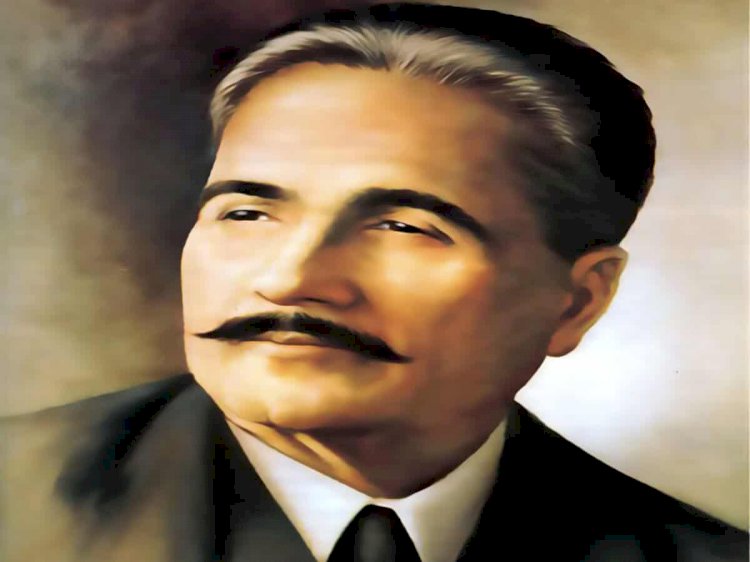



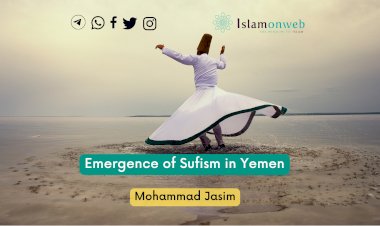
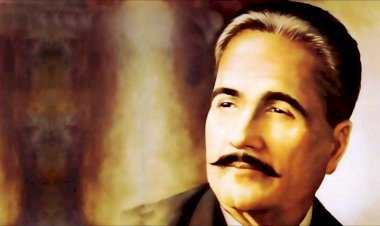
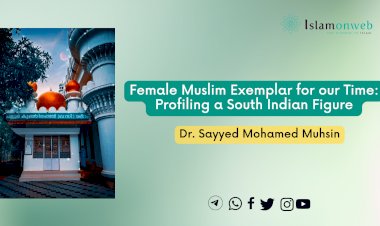
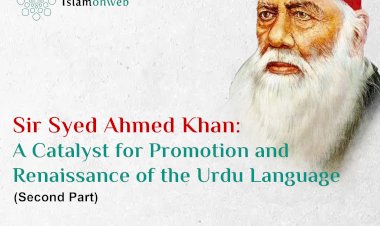
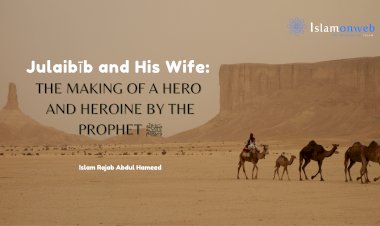
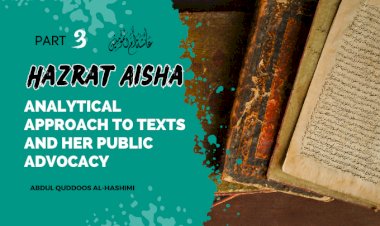














Leave A Comment